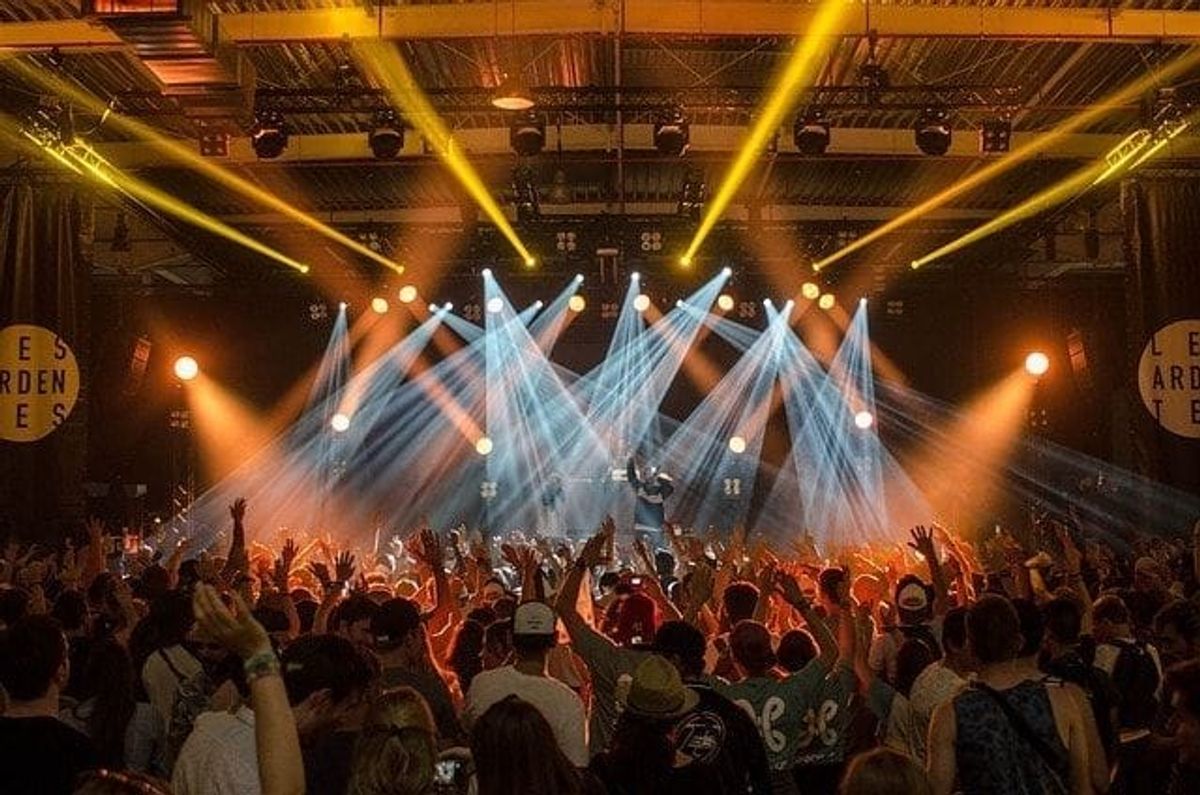Plan a Concert: Creating a Concert Planning Strategy
Planning a concert can be an exciting endeavor that may bring a community together through live music and create memorable experiences.
Quick Summary
Successful concert planning hinges on establishing clear goals, selecting an appropriate venue, and creating a detailed checklist to ensure nothing is overlooked. Effective marketing strategies build buzz, while meticulous budgeting prevents unexpected expenses. Safety is paramount, requiring collaboration with local authorities and adherence to regulations. Each concert offers unique challenges, yet learning from every event fosters growth. With an adaptable approach, the right team, and a soli
Whether it's a small concert event featuring local bands or a large production at an outdoor venue, a solid plan can make a significant difference in the likelihood of success.
Remember, while this guide offers some ideas, it's essential to conduct your own research to tailor these strategies to your needs.
Ready to Grow Your Business?
Get a custom strategy tailored to your goals.
Why Plan a Concert Matters
Concerts can be an incredible way to connect with audiences, build an artist's fan base, and create an atmosphere where musical performance takes center stage.
Having a good concert planning strategy can really make a difference in how smoothly everything goes, from selling tickets to handling sound and lighting.
Concerts are not just about booking performers; they are about creating experiences that may resonate with the target audience in the right venue at the right time.
A well-considered concert plan may help establish goals, attract new fans, and cover potential costs while delivering a memorable concert for all attendees.
Each concert event may be different, but focusing on the planning process, understanding the event's goals, and working through all the details can significantly impact the event's overall outcome.
Establishing Goals for Concert Planning
Before diving into the concert planning process, it can be important to establish clear goals.
Whether the aim is to promote a new album, engage local communities, or create an exclusive experience for fans, having specific goals may help guide decisions throughout the entire process.
For example, if a concert aims to generate revenue through ticket sales, understanding pricing, setting a realistic budget, and focusing on key marketing efforts like press releases and social media platforms can be beneficial.
On the other hand, if building a sense of community is the primary goal, then an outdoor venue that offers ample space for gathering, such as a park or open outdoor space, may provide an ideal setting.
Setting measurable objectives can also be an essential part of concert planning. These goals may range from selling a certain number of tickets, attracting media attention, or ensuring the musical performance resonates well with the target audience.
Clear goals can serve as a roadmap for the entire concert planning journey and help identify what success may look like for each specific concert event.
Choosing the Right Venue for the Concert
Choosing the right venue can often be a crucial step in the concert planning process. Factors like the size of the audience, the type of performers, and logistical requirements for sound and lighting equipment may all influence venue selection.
Whether the concert is held at an indoor or outdoor venue, the right choice may set the stage for an unforgettable concert experience.
Indoor venues may be ideal for controlled acoustics and minimizing weather-related risks, whereas an outdoor venue can offer more flexibility for larger audiences and a unique atmosphere.
Finding the perfect venue early in the planning process may help ensure that there's enough time to secure appropriate contracts, book the venue, and coordinate all necessary permits for the concert.
Ready to Grow Your Business?
Get a custom strategy tailored to your goals.
It's also important to consider the venue rules, local authorities, and whether the space meets all safety and hygiene protocols. Reviewing venue rules and ensuring the right equipment—like a quality sound system, stage lighting, and AV equipment—is available are key parts of the concert planning process.
Securing these elements early may help create a memorable concert for both the performers and the audience.
Creating a Concert Checklist for a Seamless Event
A concert checklist can be a valuable tool in organizing all the details of a concert event.
From selecting the performers to organizing sound checks and reviewing security measures, a detailed checklist may help make sure nothing is overlooked.
Important tasks on a concert checklist may include securing the right equipment, arranging for stage lighting, hiring staff, and ensuring a backup plan is in place in case of unexpected issues.
Staffing can also be an essential part of the concert planning process. Putting together a great crew—like sound engineers, lighting techs, security, and ticketing folks—can make a big difference in keeping the concert running without a hitch.
Allocate staffing costs in the budget to make sure the team has what it needs, and double-check that the right staff members are available on the concert date.
Having a well-organized concert checklist may allow event planners to prepare for any potential costs, understand what needs to be done, and ultimately increase the chances of a successful and seamless event.
Marketing the Concert Event
Marketing efforts can be a vital part of the concert planning process.
A strong promotional strategy may help generate buzz, drive ticket sales, and ensure that the target audience is aware of the event. Using social media can be a great way to connect with people who might want to attend the event and keep them in the loop with updates.
Creating an event page with key details—such as the concert date, location, and lineup—may help build anticipation. Additionally, offering early bird tickets or special promotions for previous attendees can incentivize ticket sales.
Press releases, social media posts, and collaborations with local bands and influencers may further extend the event's reach.
During the concert, engaging with attendees through live updates and interactive content like Q&A sessions may enhance the overall experience.
Post-event engagement can also be important; sharing highlights, thanking attendees, and gathering feedback through post-event surveys may leave a lasting impression and lay the foundation for future events.
Ready to Grow Your Business?
Get a custom strategy tailored to your goals.
Budgeting for Concert Planning

Every detail—from sound and lighting equipment to staffing costs—needs to be accounted for to avoid unexpected expenses.
Organizing the budget into specific categories like AV equipment, venue rental, marketing, and security can help ensure thorough coverage of all potential costs.
Considering partnerships or sponsors may be an effective way to offset expenses and increase the event's visibility.
Working with local businesses, brands, or influencers may provide mutual benefits and help expand the event's reach. Sponsors might also contribute resources like sound equipment or promotional materials, reducing the need for additional spending.
Leaving some room in the budget for last-minute expenses may also be important. Whether it's additional lighting equipment, increased staffing needs, or unforeseen challenges, having a contingency plan may help make sure the concert runs smoothly without any financial setbacks.
Reviewing Security Measures and Necessary Permits
Ensuring safety is an essential part of planning a concert, whether it's held at an indoor or outdoor venue. Working closely with local authorities and reviewing security measures can help making sure that all necessary protocols are followed.
This can include securing the appropriate permits, reviewing emergency evacuation plans, and ensuring that enough staff members are available for crowd control, and many more.
For an outdoor venue, additional considerations like weather conditions and safety protocols for outdoor spaces can come into play.
Additionally, it’s essential to create a security and contingency plan. Local authorities may require such plans as part of the permit process.
The information provided here is just a basic overview, and a more thorough approach is required depending on the scale and complexity of the event. Safety considerations can be complex, and it is often best to seek professional advice to ensure compliance with regulations and to safeguard all participants effectively.
Conclusion: Planning a Concert

Planning a concert can be a rewarding experience, but it often requires careful attention to all the details—from choosing the perfect venue to ensuring sound checks are seamless.
Each event is unique, but by focusing on the planning process, establishing goals, marketing effectively, security, and budgeting appropriately, the foundation for a successful concert may be built.
Concert planning is an ongoing learning process, and each new event may bring new challenges and insights.
With a solid plan in place, the right team, and an adaptable approach, the next concert may bring unforgettable moments for both performers and audiences alike.
Whether it's a concert for favorite artists, a local band showcase, or a large-scale outdoor venue production, a thoughtful approach to event planning may increase the chances of success and create lasting memories.
Ready to Grow Your Business?
Get a custom strategy tailored to your goals.
Related Resources
Calculators
Pricing Guides
Key Terms
The deliberate sequencing of release platforms (theatrical, streaming, VOD) to maximize revenue across all distribution channels.
Creative ProducerA producer focused on story, talent, and creative elements rather than primarily on financing and business aspects.
Stem DistributionReleasing individual component tracks of a song separately, enabling remixing, sync licensing, and fan creativity.
Music Sync AgentRepresentative who secures placement of music in film, TV, advertising, and games.
Social AudioShort-form music content created for social media platforms.
Related Articles

Events Marketing Plan: Creating an Event Strategy
Planning a successful event often requires a well-thought-out strategy that can significantly impact its outcome. Whether you're organizing a conference, a product launch, or a community event, an

10 Steps on How to Develop a Marketing Plan for Your Next Event
Events are a mix of fun and challenges. Whether it's a corporate seminar, product launch, or a big celebration, the key to a successful event is in the planning and execution.

Event and Party: Planning for Memorable Experiences
Planning an event and party can be a rewarding process that brings people together to celebrate, create memories, and share meaningful experiences. Whether it's a wedding, a corporate gathering, o